Theorem on Friends and Strangers; Why in Any Party of Six People, Either at Least Three of Them Are Mutual Friends, or at Least Three of Them Are Mutual Strangers
Por um escritor misterioso
Last updated 16 junho 2024
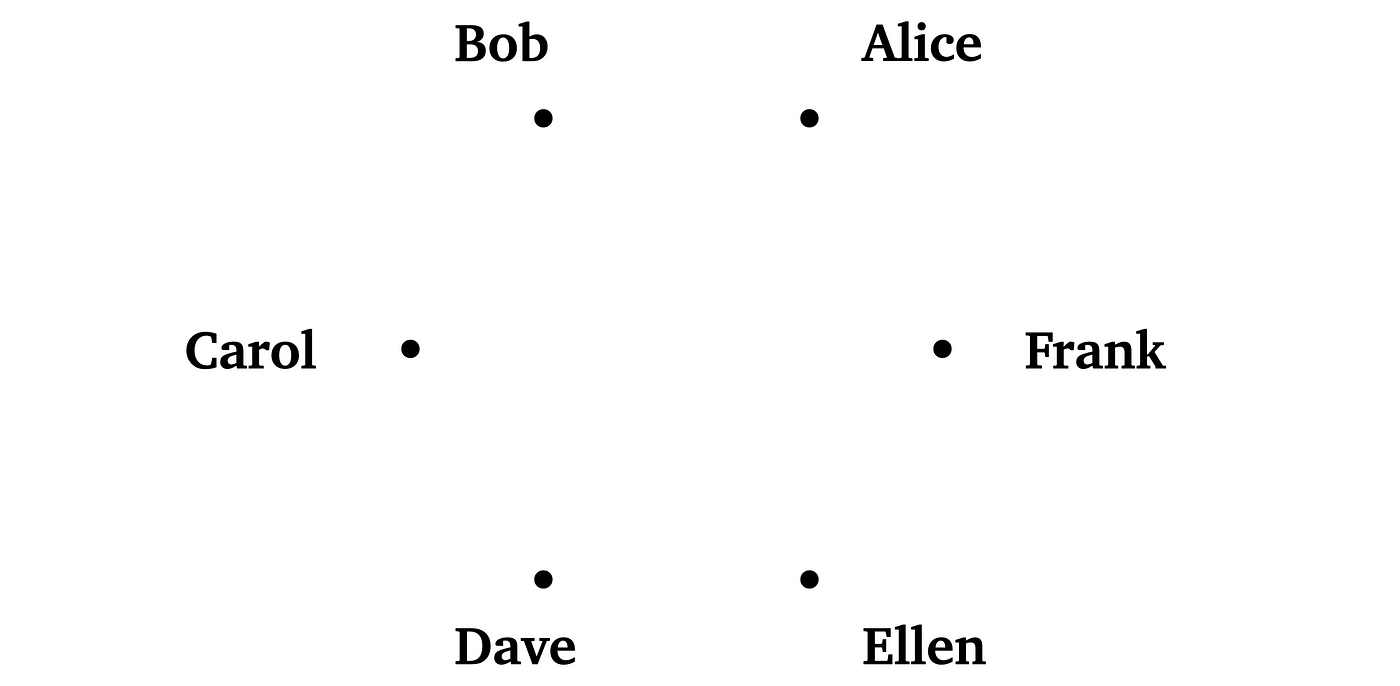
Let’s take a look at Alice first. To her, each one of the other five (Bob, Carol, Dave, Ellen, and Frank) is either a friend or a stranger. Suppose Bob, Dave, and Frank are friends to Alice, and…

Theorem on friends and strangers - Wikipedia

Ramsey's Theorem: Friends and Strangers
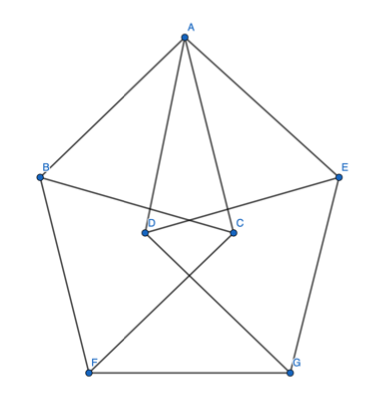
Ramsey Theorems in Euclidean Geometry — Math In Action

Theorem on Friends and Strangers; Why in Any Party of Six People, Either at Least Three of Them Are Mutual Friends, or at Least Three of Them Are Mutual Strangers

Can Math Prove You'll Always Be the Odd One Out At Parties?, by Mary Paskhaver, Geek Culture
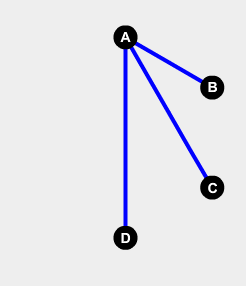
Theorem on Friends and Strangers. Ramsey Theory and Graham's Number, by Francesco Di Lallo

Ramsey Theorems in Euclidean Geometry — Math In Action

Pigeonhole Principle] Show that in any 10 people, there are either 4 mutual friends or 3 mutual strangers. : r/HomeworkHelp
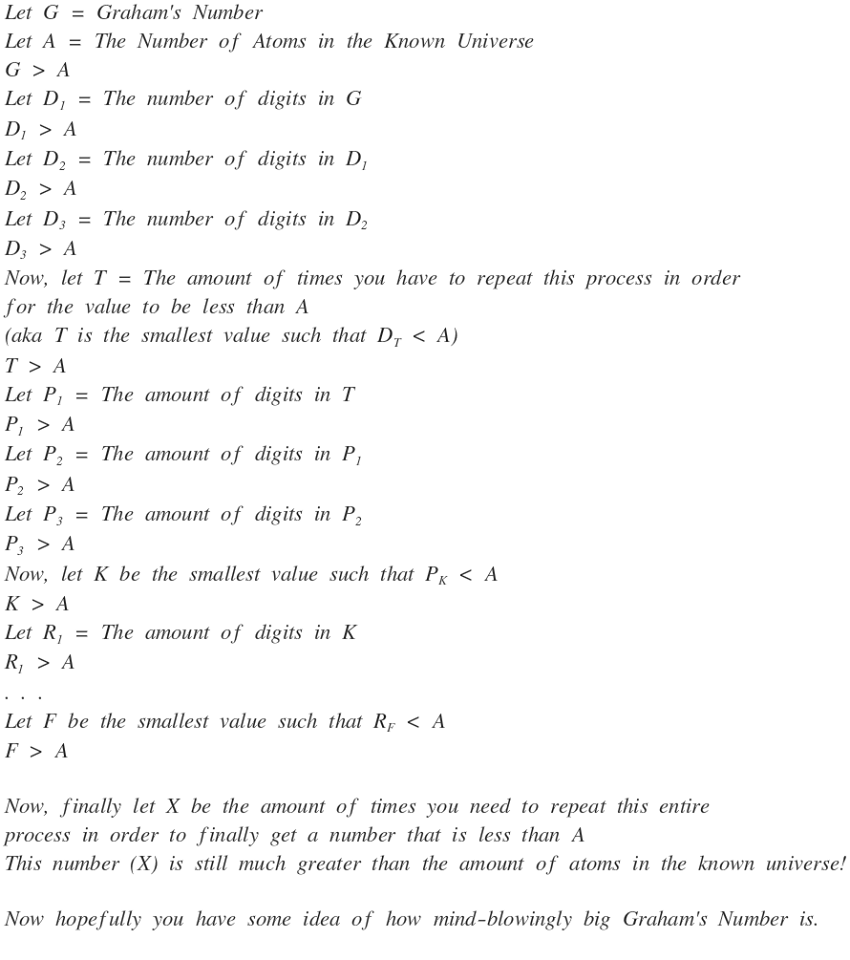
Theorem on Friends and Strangers. Ramsey Theory and Graham's Number, by Francesco Di Lallo
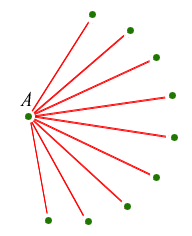
Friends and strangers
How to prove: at a party of six people either there are three mutual acquaintances or there are three mutual strangers - Quora
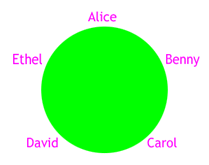
Dinner Party Problem – Math Fun Facts
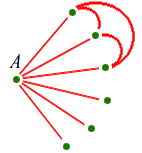
Friends and strangers
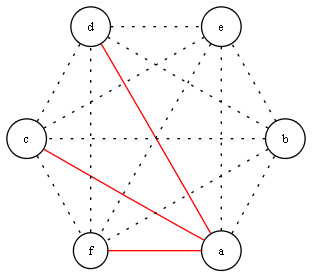
Friends and Strangers
Recomendado para você
-
 Strangers Can Become Best Friends Stranger quotes, Lost friendship quotes, Real friendship quotes16 junho 2024
Strangers Can Become Best Friends Stranger quotes, Lost friendship quotes, Real friendship quotes16 junho 2024 -
 Strangers to Best Friends to Lover to Strangers? - Mia Gonzaga - Wattpad16 junho 2024
Strangers to Best Friends to Lover to Strangers? - Mia Gonzaga - Wattpad16 junho 2024 -
 strangers -> friends -> best friend -> lovers -> s16 junho 2024
strangers -> friends -> best friend -> lovers -> s16 junho 2024 -
 Aarti on X: Strangers - Friends - Best Friends - Lovers - Strangers .. A Full Circle .. Love withers away #MostHearingLies / X16 junho 2024
Aarti on X: Strangers - Friends - Best Friends - Lovers - Strangers .. A Full Circle .. Love withers away #MostHearingLies / X16 junho 2024 -
From Strangers to Friends: The Magic of Community Building and Fostering Connections16 junho 2024
-
 Conversations on Love: Lovers, Strangers, Parents, Friends, Endings, Beginnings16 junho 2024
Conversations on Love: Lovers, Strangers, Parents, Friends, Endings, Beginnings16 junho 2024 -
 Strangers are what friends are made of. - Quote16 junho 2024
Strangers are what friends are made of. - Quote16 junho 2024 -
 Strangers To Friends16 junho 2024
Strangers To Friends16 junho 2024 -
 Stranger Friend – Turning Strangers into Friends16 junho 2024
Stranger Friend – Turning Strangers into Friends16 junho 2024 -
 When Lovers and Friends Become Strangers – The Weekly Sparkle16 junho 2024
When Lovers and Friends Become Strangers – The Weekly Sparkle16 junho 2024
você pode gostar
-
 We Never Learn16 junho 2024
We Never Learn16 junho 2024 -
 PlayStation 2 - Wikipedia16 junho 2024
PlayStation 2 - Wikipedia16 junho 2024 -
![Lista de fornecedores de maquiagem: os 9 melhores! [2023]](https://i.ytimg.com/vi/WXybF_uzT9o/maxresdefault.jpg) Lista de fornecedores de maquiagem: os 9 melhores! [2023]16 junho 2024
Lista de fornecedores de maquiagem: os 9 melhores! [2023]16 junho 2024 -
 Spider-Punk is the real hero of 'Spider-Man: Across the Spider16 junho 2024
Spider-Punk is the real hero of 'Spider-Man: Across the Spider16 junho 2024 -
 The N64's GoldenEye 007 Hits Switch and Xbox This Week, With Online Multiplayer - Paste Magazine16 junho 2024
The N64's GoldenEye 007 Hits Switch and Xbox This Week, With Online Multiplayer - Paste Magazine16 junho 2024 -
 Screen Auto Clicker for iPhone iPad: Physically Connected Auto Clicker For Android IOS Screen Device,Adjustable Speed Automatic Screen Tapper,Suitable16 junho 2024
Screen Auto Clicker for iPhone iPad: Physically Connected Auto Clicker For Android IOS Screen Device,Adjustable Speed Automatic Screen Tapper,Suitable16 junho 2024 -
 3 Star Ao Shin 🐉16 junho 2024
3 Star Ao Shin 🐉16 junho 2024 -
 Fundo Tabuleiro De Xadrez Com Peças De Metal Em Movimento Fundo16 junho 2024
Fundo Tabuleiro De Xadrez Com Peças De Metal Em Movimento Fundo16 junho 2024 -
 Notorious B.I.G.- Real Footage of the Shooting in 1997 - Video16 junho 2024
Notorious B.I.G.- Real Footage of the Shooting in 1997 - Video16 junho 2024 -
 HeresMuse (carlodvroblox) - Profile16 junho 2024
HeresMuse (carlodvroblox) - Profile16 junho 2024
